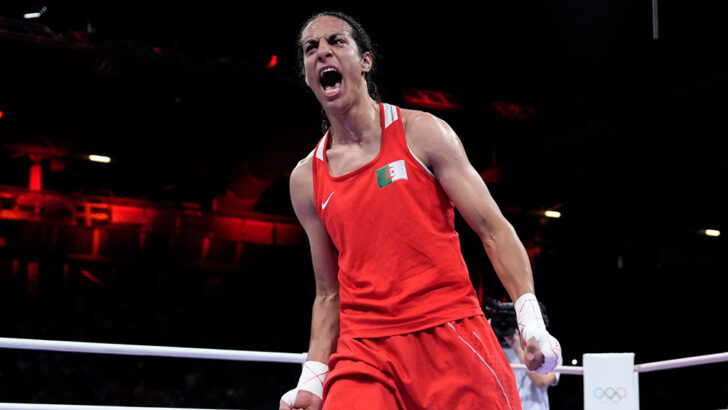Controversy has erupted at the Olympics over two competitors in women’s boxing. Imane Khelif from Algeria and Lin Yu-Ting from Taiwan were disqualified from the International Boxing Association Women’s World Boxing Championships in New Delhi last year after failing gender tests. However, both were cleared to compete in the Paris Olympics.
Controversy
One journalist with RTÉ Prime Time, Jack McCarron, attempted to explain the controversy away claiming it had all arisen following ‘a single statement from a Russian official’. However, the minutes of the March 2023 International Boxing Association (IBA) meeting (available online) says two separate laboratories in two separate countries found the boxers failed to meet eligibility rules and the decision to disqualify them was approved by a majority vote.
Just hours after the Prime Time article was published, the IBA issued a statement saying the boxers did not meet eligibility criteria and were found to have a competitive advantage in the women’s category. The IBA stated that Lin Yu-Ting did not appeal the decision and that Imane Khelif initially appealed the decision but withdrew the appeal during the process.
“The rare DSD XY 5-ARD, for example, impacts development of external male sex organs and many therefore are registered female at birth”
The IBA did not give further details about the tests. However, speculation is rising that the athletes have an XY chromosome (male) and possibly also a difference/disorder in sexual development (DSD). DSDs, sometimes called ‘intersex’ conditions, can impact hormones, external genitalia, reproductive organs, and/or chromosomes. The rare DSD XY 5-ARD, for example, impacts development of external male sex organs and many therefore are registered female at birth. The condition is often unknown until the child goes through puberty and male hormonal changes lead to the development of secondary sex characteristics.
Award-winning sports writer, Alan Abrahamson, says he has seen a letter sent by the IBA to the International Olympics Committee on June 5 2023 which says that Khelif’s DNA is that of a male with XY chromosomes and that the tests found that both Imane Khelif and Lin Yu-Ting have a ‘male karyotype’ (chromosomes).
Rules
It is up to individual International Sports Federations (IFs) to establish rules for their sports in the Olympics. The IBA had been a recognised International Sports Federation but the International Olympic Committee (IOC) suspended the IBA in 2019 and completely withdrew recognition of the IBA in June 2023 following concerns about IBA financing and governance.
IBA rules state that boxers can only compete against boxers of the same gender and that women competitors must have XX chromosomes. However, the IBA had no say in the rules for the 2024 Olympics. The IOC, instead, created the Paris 2024 Boxing Unit in order to take charge of Olympic boxing.
“Other sports federations have taken steps to ensure fairness and safety in women’s sports”
A joint statement issued by the Paris 2024 Boxing Unit and the IOC says the gender of athletes in the Olympics is based on their passport. One IOC publication defines woman as ‘a gender identity’. Another IOC Framework says that no athlete should be targeted for testing for their sex. Interestingly, the IOC do carry out tests for eligibility in weight categories.
Research shows that the performance advantage of males over females becomes significant at puberty with a gap of 10-50% depending on sport. Males have, on average, 61% more muscle mass and about 90% greater upper body strength than females. Males also have up to 162% greater arm muscle-power.
Other sports federations have taken steps to ensure fairness and safety in women’s sports. World Rugby is the recognised IF responsible for Olympic rugby. Their regulations state that anyone who has ‘experienced the biological effects of testosterone during puberty cannot safely or fairly compete in women’s rugby’.
The rules for Olympic swimming are decided by World Aquatics (previously known as FINA) who say they are committed to the separation of athletes into men and women’s categories based on biological sex. They require all athletes to certify their chromosomal sex.
Evidence
At the time of writing, both Imane Khelif and Lin Yu-Ting are guaranteed an Olympic medal after progressing through the early rounds. Khelif’s first round match against Angela Carini ended after 46 seconds with a tearful Carini saying she had never been punched so hard.
Many people argue in favour of Imane Khelif and Lin Yu-Ting competing in the women’s category. Some say there is no evidence that the boxers have XY chromosomes. A straightforward and simple cheek swab followed, if necessary, by further tests would clear up this issue. Why are these tests not happening? And why do the IOC not recognise that males have a performance advantage over women?
“They concluded that player welfare was their number one priority”
Sports scientist Ross Tucker has explained that World Rugby, in drawing up their eligibility rules, realised they were probably going to be sued no matter what they did and so it was ‘better to be sued for the right thing rather than the wrong thing’. They concluded that player welfare was their number one priority and therefore any male who had gone through male puberty would not be eligible to compete in the women’s category. It’s time for the IOC to follow their lead. Women’s safety in Olympic boxing is on the line.


 Imane Khelif celebrates after winning her quarter-final. Pic: AP.
Imane Khelif celebrates after winning her quarter-final. Pic: AP. 